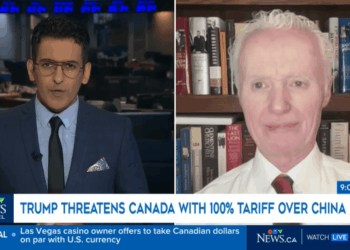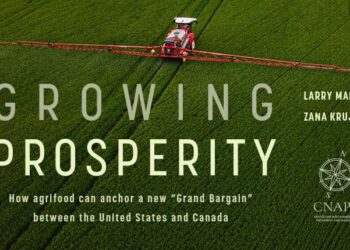This article originally appeared in the National Review. Below is an excerpt from the article.
By Ed Fast, October 17, 2025
When Canada, the United States, and Mexico signed USMCA, their new free trade agreement, in 2018, it was supposed to lock in a generation of trade stability. The agreement modernized NAFTA for a digital era, expanded market access, and renewed North America’s commitment to open and rules-based commerce. Six years later, the deal’s durability is already in question.
The problem isn’t that trade volumes have fallen — they’ve grown. The problem is enforceability. When one partner disregards the spirit and letter of the deal without consequence, the entire North American trade framework collapses. The 2026 USMCA review must deliver ironclad enforcement provisions that make the rules stick.
At the heart of the coming 2026 review — or renegotiation, as it is fast becoming — must be a serious conversation about how to ensure the rules are respected. An agreement that can be violated or ignored with impunity is no agreement at all.
The Trump administration’s renewed use of Section 232 of the U.S. Trade Expansion Act — claiming “national security” to justify punitive tariffs on Canadian steel, aluminum, and, more recently, copper — reveals the core weakness of the current deal. These tariffs are not about national security. They are protectionism dressed up as patriotism.
Canada is the United States’ closest ally, an integrated defense partner, and a supplier of critical materials that underpin North American security itself. To suggest that Canadian metals threaten U.S. security is as illogical as claiming that oxygen threatens life. Yet Washington has repeatedly used Section 232 as a cudgel to extract concessions or to appease domestic lobbies, knowing that the trade remedies within USMCA are too slow, too narrow, and too political to deter bad behavior.
Ed Fast, distinguished fellow at the Macdonald-Laurier Institute and the Center for North American Prosperity and Security, is a former Minister of International Trade who led Canada’s negotiations on CETA, the TPP, and the Canada–Korea Free Trade Agreement.








